Dies academicus 2018: Tradition and vision of the future
Seven honorary doctorates were awarded at the University of Bern’s 184th Dies academicus. The university's foundation ceremony is a celebration with a long tradition at which the speakers take a look into the future. Christine Häsler, the new Director of Education for the Canton of Bern, was there for the first time.
"You may wonder why we chose the Stadttheater as the venue for this ceremony," said Rector Christian Leumann at the beginning of his welcoming speech at the University of Bern’s 184th Dies academicus. The University of Bern’s foundation ceremony traditionally takes place at the Bern Casino, which is still undergoing renovation work until 2019. "The theater and the university are more closely linked than many people think," explained Rector Leumann. "In the humanities, for example, we deal with the nature of theater in teaching and research."
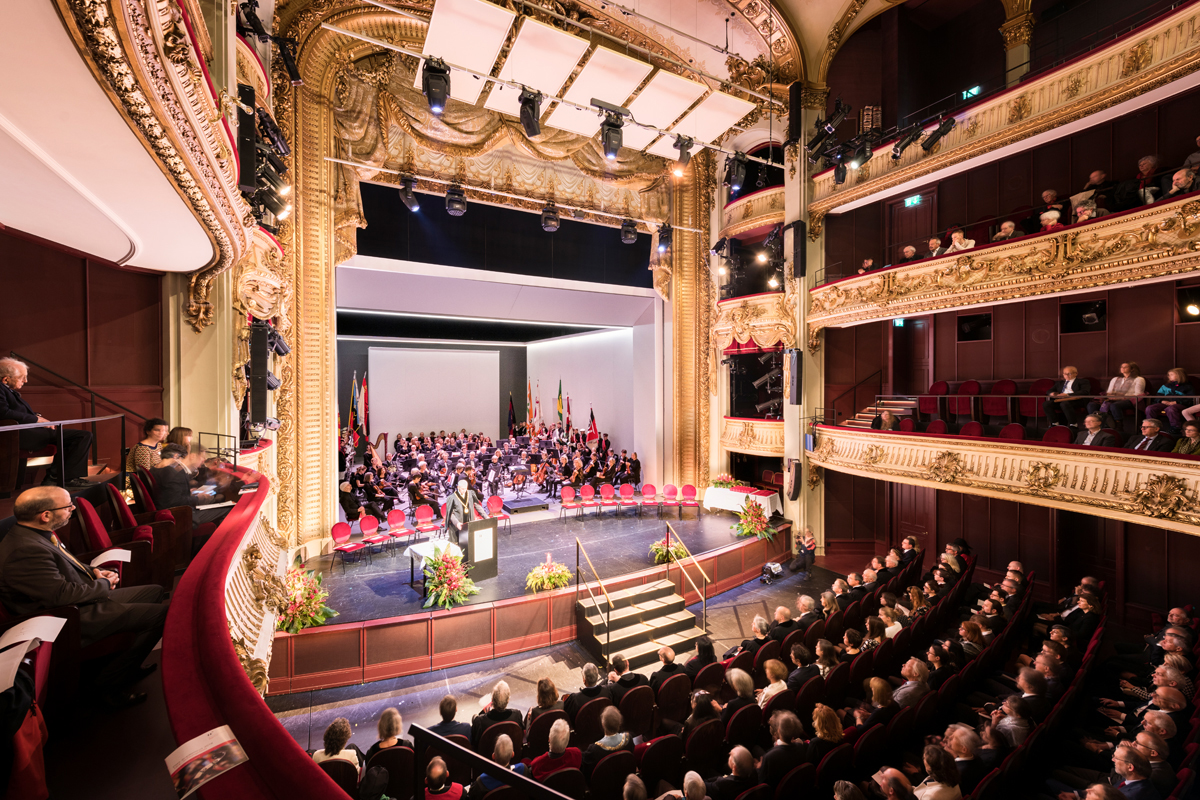
The Rector feels like studying again
In his address, Rector Christian Leumann focused on the future of teaching and the influence of digitization. Public discourse was focusing too much on the technology, he said. But the teaching content is far more important in view of the rapidly changing world of work: "The focus in future will be less on teaching knowledge and more on the ability to acquire knowledge in specific situations instead." He outlined a fictitious example of a project-focused, interdisciplinary Master's degree program, consisting of biochemistry, ethics, literature and law. "I'm thinking about completing such a master's degree program myself after I retire, if it exists then," said Christian Leumann with a smile.
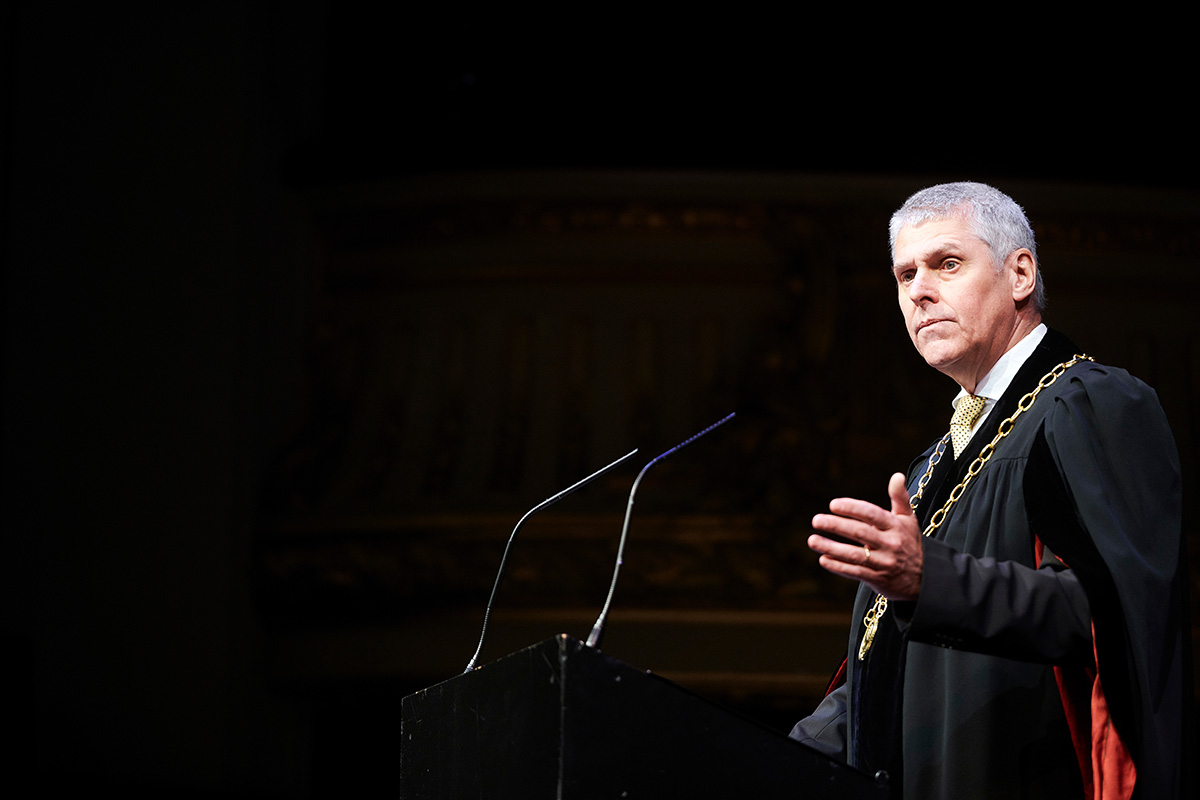
"To encourage pride in the university"
Member of the Executive Council Christine Häsler's appearance was eagerly awaited, as it was the first speech by the Canton of Bern’s new Director of Education. She didn’t have to search for her personal connection to the university for very long while preparing: "There isn't one," announced Christine Häsler. She started her career with a commercial apprenticeship and comes from a completely different discipline to academia. "The collaboration between the University of Bern and myself can therefore be described as 'interdisciplinary'." This interdisciplinary nature can bring added value: "If we pool our resources and strengths, a Director of Education without a university background in particular will contribute to the University of Bern’s good development." She is happy to help promote the confidence in the university and the people of Bern’s pride in their university.
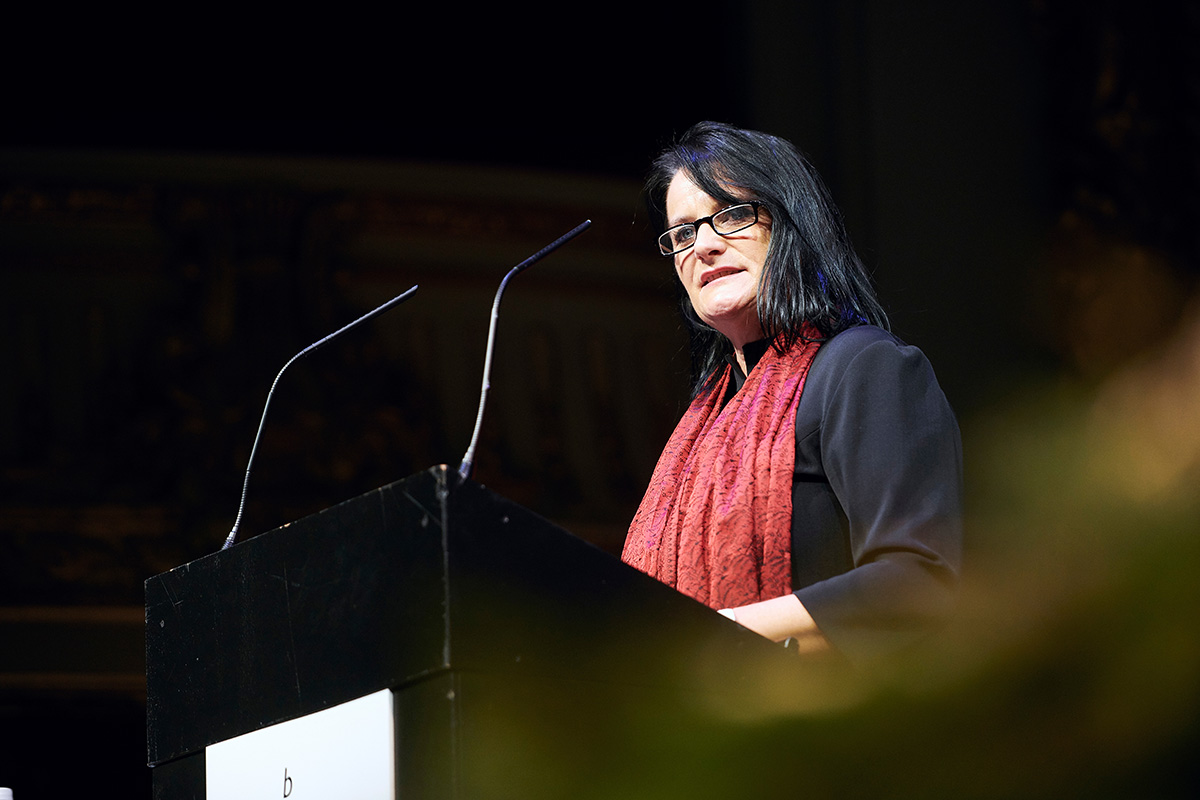
The University and National Bank have a lot in common
The speech by National Bank President Thomas Jordan was a plea for the Swiss education system. However, the alumnus and honorary professor of the University of Bern started by establishing an unusual connection between the university and the Swiss National Bank (SNB) by looking back at his days as a student. He can still remember well that there was a wine corking machine in the cellar of the Economic Institute at that time. "I'm sure you'll understand that I'm not talking about a mysterious basement at the SNB. Although we had a lot to offer in this respect, even without the wine corking machine," Jordan described to the delight of the audience. The SNB President also addressed much more relevant common factors of course: Both the university and the SNB have a government mandate, a high degree of independence, operate in an international environment and are in the midst of technological change. It is precisely because of this change that the SNB relies on a good education system. This must be preserved and further developed.
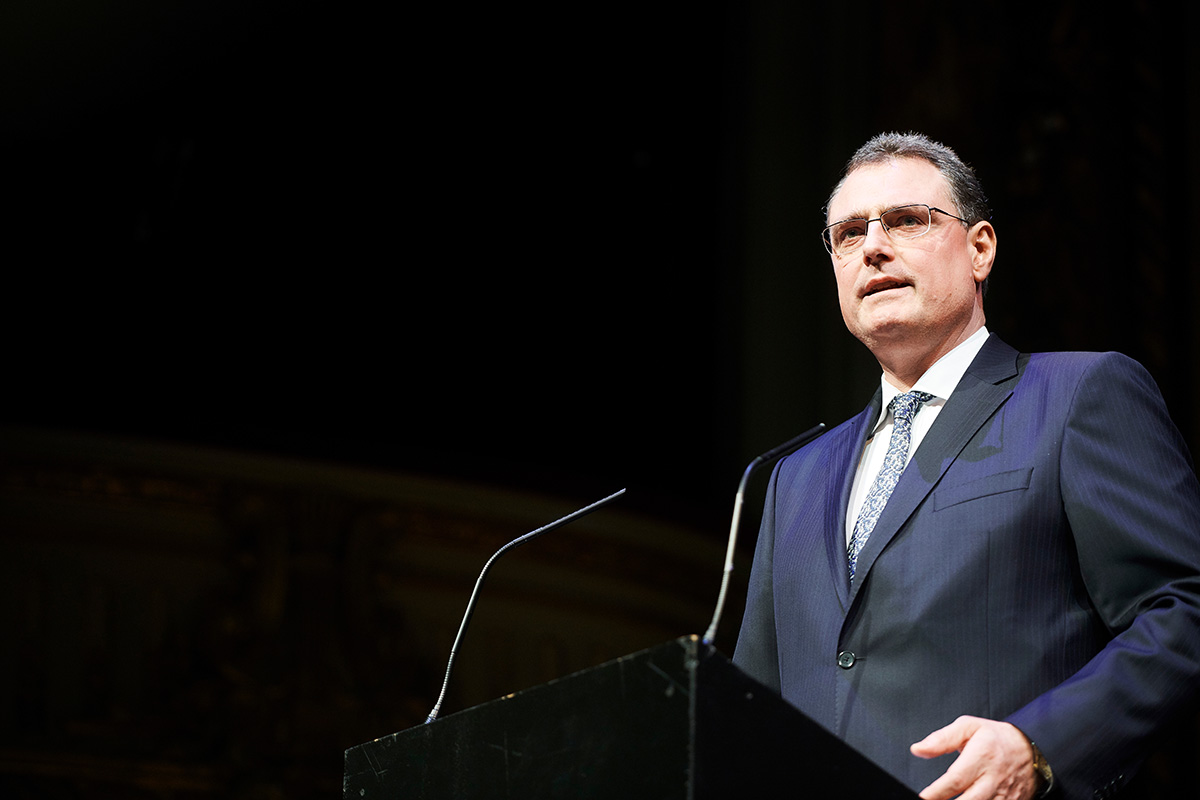
A future for Mohammed, Francesca and Alex
The last speech was delivered by Valentina Achermann, board member of the Students’ Union of the University of Bern (SUB). She showed what her vision for the future of the University of Bern looks like using three examples of future students in 2030. Mohammed, son of a family who fled to Switzerland, Francesca, a mother of two children in the position of a professor of theoretical physics, and Alex, a trans*person in the middle of their master's degree program, all pursuing their activities at the university without any obstacles and prejudices. "The SUB is already trying to get closer to this vision. Let us question the status quo and break down the barriers so that Mohammed, Francesca or Alex can one day be honored at the Dies academicus," appealed Valentina Achermann.
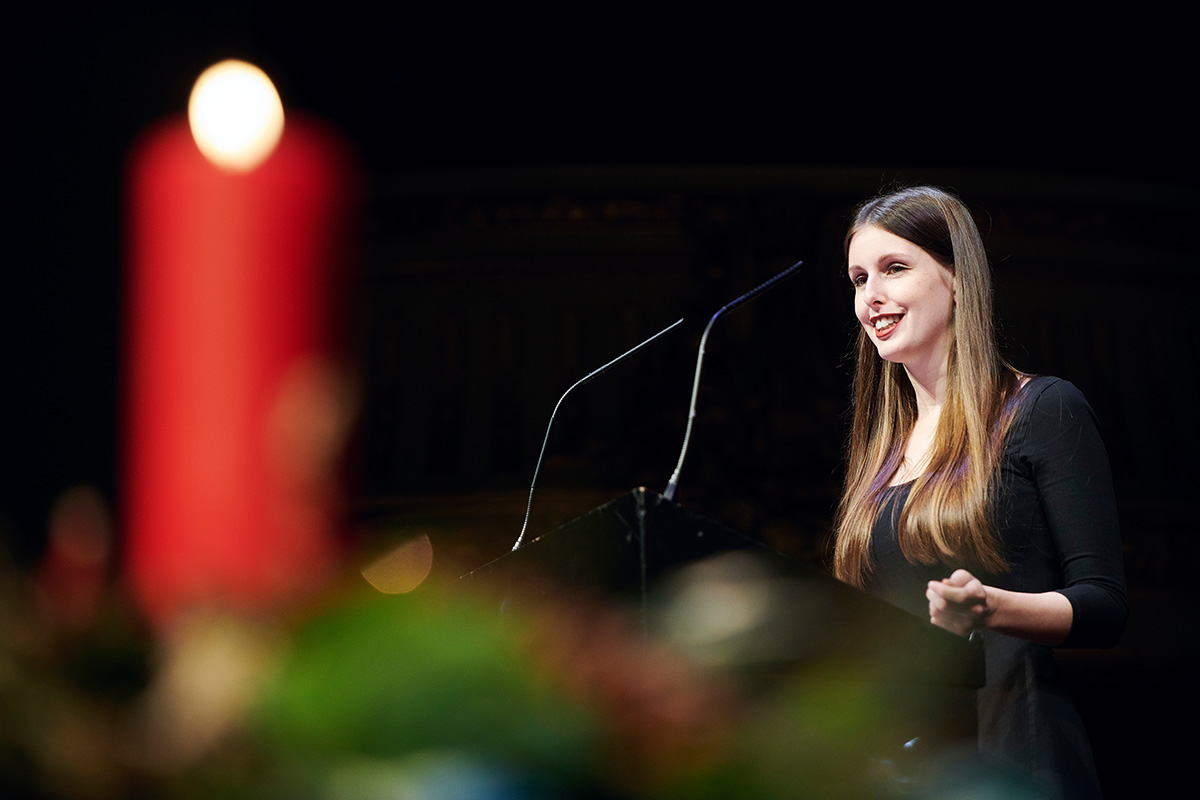
Seven doctor honoris causa
The musical interlude by the Medizinerorchester Bern and the Unichor Bern was followed by the highlight of the event: The awarding of doctor honoris causa and academic prizes. Three women and four men were awarded honorary doctorates. The Deans of the honoring faculties, dressed in robes, delivered laudatory speeches and presented the certificate to the honorees.
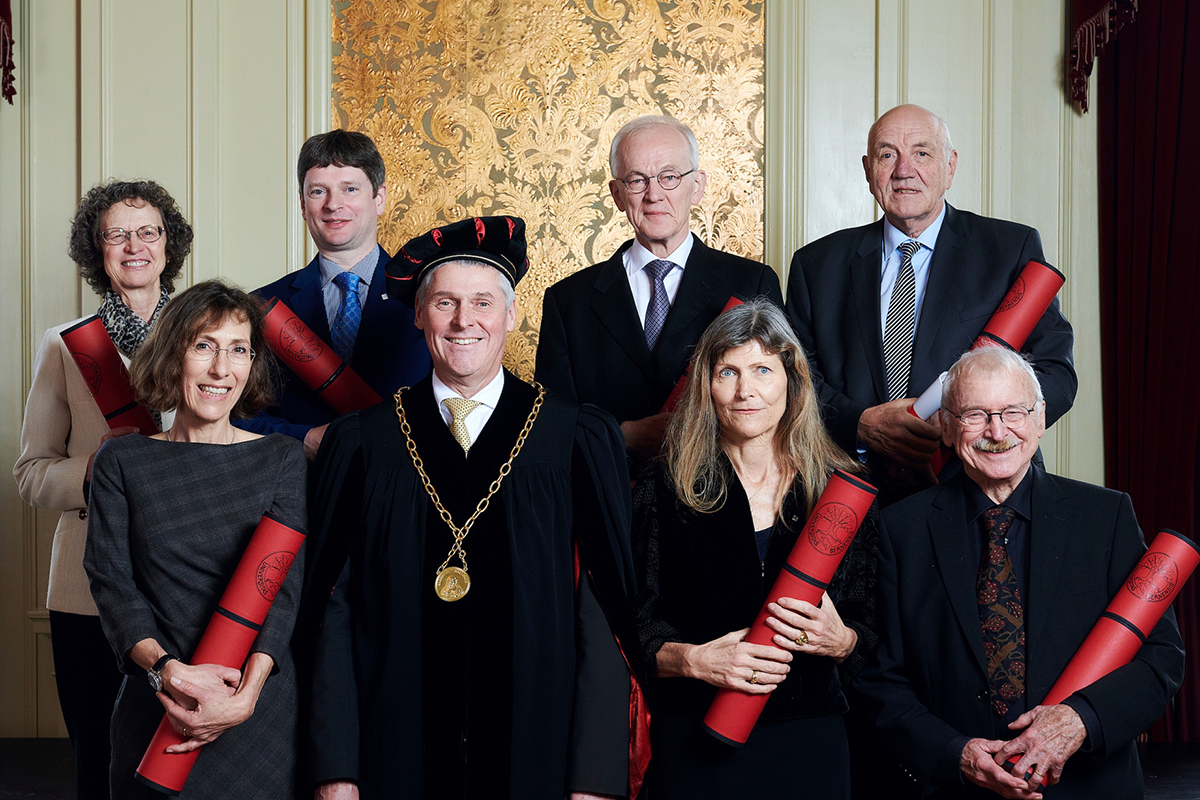
Nine academic prizes were also personally awarded at the foundation ceremony. It was noticeable that eight of the nine people awarded were women. The Dies academicus ended with one last tradition: The song "Gaudeamus igitur", which more or less means "So let us be joyous". A celebratory song for a celebratory occasion.
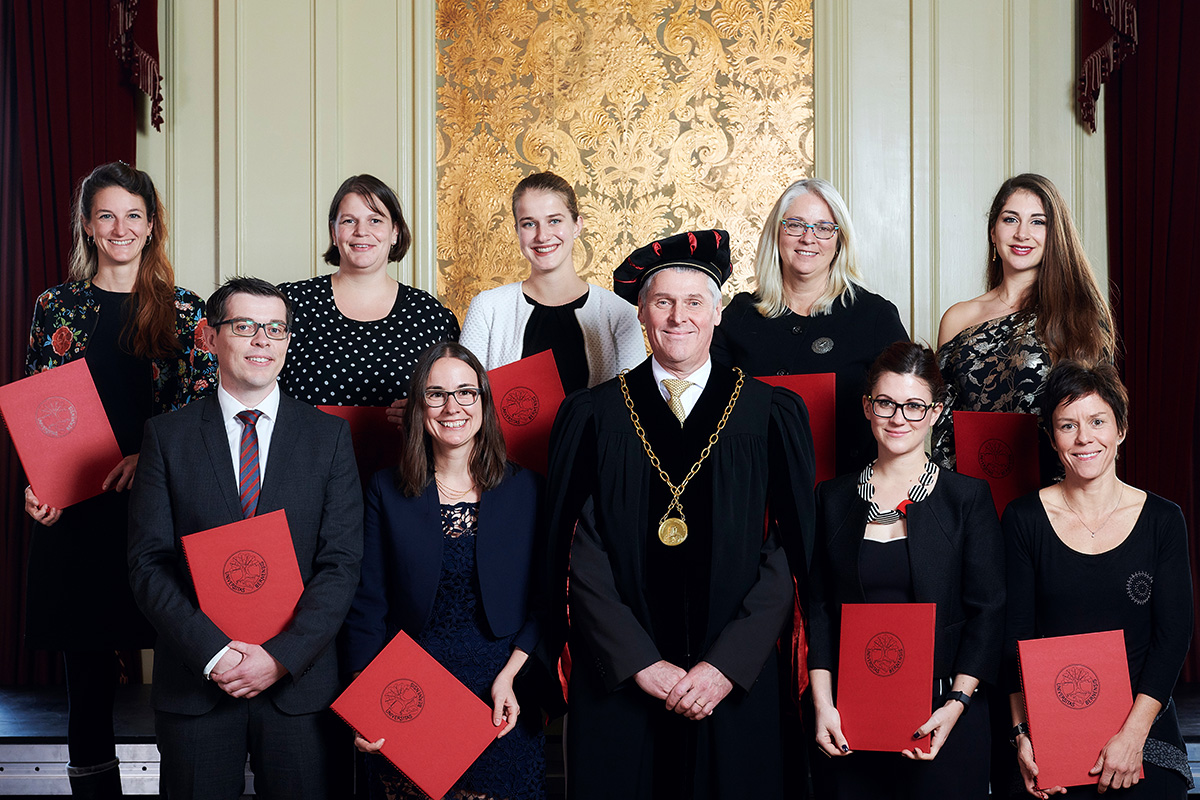
The Dies academicus
The Dies academicus (Foundation day) commemorates the founding of the University of Bern in 1834 and is held every first Saturday in December. The official part is a public event and interested parties are cordially invited.
ABOUT THE AUTHOR
Ivo Schmucki works as an editor at Media Relations in the Communication and Marketing Office of the University of Bern.